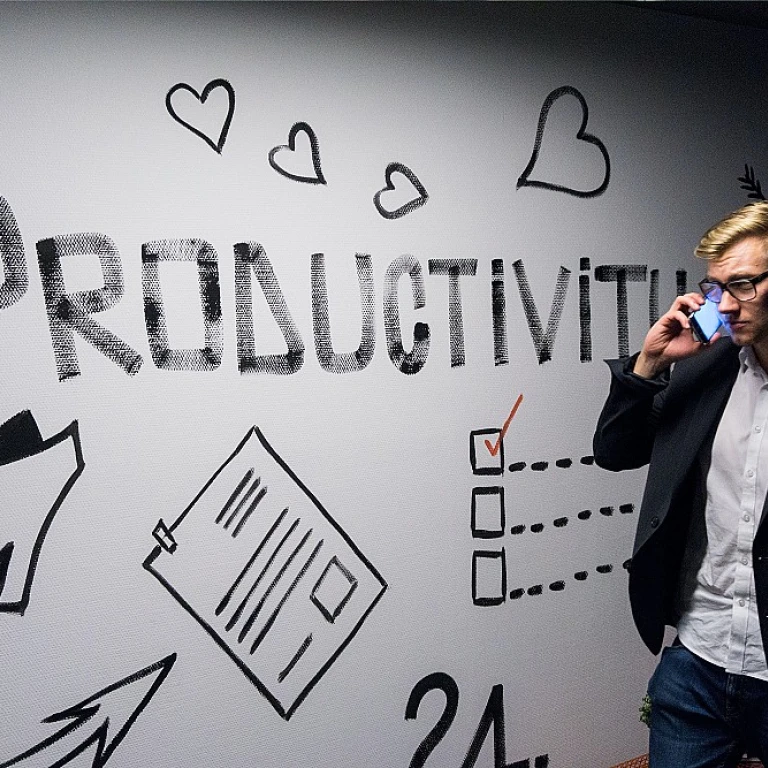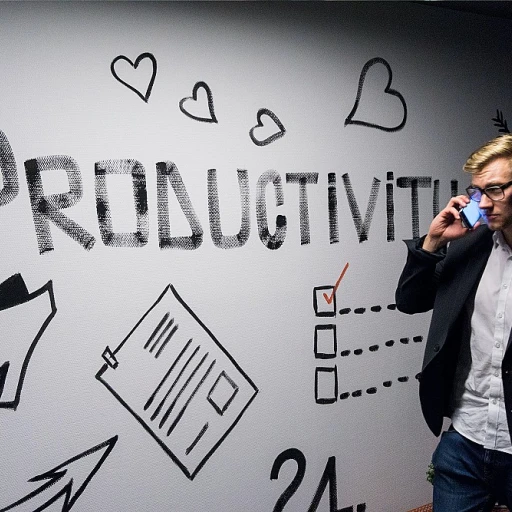
Recognizing Unprofessional Behavior During Interviews
Spotting Behavioral Red Flags in Candidate Interviews
During the hiring process, it's essential for employers to recognize unprofessional conduct displayed by candidates. Observing applicants in an interview setting provides insight into their potential workplace behavior and compatibility with the company culture. Identifying these red flags early can prevent costly hires that might negatively impact the work environment. Unprofessional behavior during interviews can manifest in various ways, such as poor communication skills, lack of punctuality, or an apparent disregard for business ethics and company policies. Sometimes, candidates exhibit signs of "aggressive communication" or display "passive disengagement." It's vital to watch for these signs, as they might lead to workplace bullying or contribute to a toxic work culture if not addressed. To effectively spot these behaviors, interviewers should be attentive and ask probing questions. Questions regarding past experiences with team dynamics, handling conflicts, or facing ethical dilemmas can reveal how a candidate might fit into the organizational structure. Furthermore, having a clear code of conduct for the interviews helps set a standard for professional behavior expectations from the get-go. Incorporating discussions about your organization's values and expectations regarding professional conduct during interviews is a proactive measure. This helps candidates understand the company's stance on ethical behavior and what is required from them. Interviewers can exemplify these values in their interactions, setting a standard for the type of employee the organization seeks. For more on how workplace behavior can influence a company’s environment from the start, consider reading about crafting the perfect welcome email for new employees here.Common Types of Unprofessional Conduct
Exploring Different Forms of Unprofessional Conduct
Unprofessional conduct can manifest in various ways and understanding these forms is crucial in recognizing and managing them effectively within a work environment. Employees, managers, and organizations must be aware of these behaviors to foster a professional culture and ensure patient safety in acute healthcare settings or other industries.
Here are some common types of unprofessional behavior frequently encountered in workplaces:
- Lack of Professionalism: This includes behaviors like consistently missing deadlines, making inappropriate comments, or failing to adhere to company policies and the code of conduct. Such actions can disrupt the work environment and impact team morale.
- Unethical Behavior: Forms of unethical conduct such as falsifying documents, violating business ethics, or abusing company resources can lead to serious consequences including disciplinary action.
- Workplace Bullying: Intimidating or belittling colleagues, whether through verbal or non-verbal communication, creates a hostile environment that hampers productivity and employee well-being.
- Abusive Leadership: Managers demonstrating disrespect or unreasonable demands can lead to diminished morale and productivity, significantly impacting the overall culture of the organization.
- Sexual Harassment: This grave issue involves unwanted, inappropriate sexual advances or comments, creating an unsafe and uncomfortable work setting.
Employers need to clearly address these unprofessional behaviours through effective strategies, established ethical guidelines, and training to maintain a positive and inclusive culture. Identifying these behaviors early allows for proactive measures in decision making and aligning with corporate values. Unprofessional conduct not only impacts individual employees but can also lead to broader organizational challenges. Understanding these facets helps companies take a realist approach in balancing the benefits and challenges of offering innovative benefits like unlimited PTO, among others.
Impact of Unprofessional Behavior on Workplace Culture
Detrimental Effects on Organizational Culture
Unprofessional behavior in the workplace can have far-reaching consequences, affecting both employees and the overall organizational culture. When such behaviors are pervasive, they can create a toxic environment where employees feel undervalued and demotivated. This negativity can compromise a company’s ethics, which should be the foundation of business operations and workplace interactions.
One of the primary impacts of unprofessional behavior is its potential to disrupt effective communication and collaboration among team members. A lack of professionalism often leads to misunderstandings, conflict, and poor decision-making, which can hinder productivity and lead to a chaotic work environment. Managers, in particular, need to cultivate a professional atmosphere to uphold standards and set a positive example for their teams.
Moreover, unprofessional conduct such as workplace bullying or sexual harassment can lead to acute healthcare issues for employees, increasing absenteeism and turnover rates. According to a realist review of organizational dynamics, when employees experience such behaviors, they are more likely to disengage and even contemplate exiting the company entirely, which challenges the organization’s ability to retain talent and maintain a harmonious culture.
To address these issues, organizations should implement strategies that promote a healthy work atmosphere by reinforcing ethical behavior and establishing clear codes of conduct. Disciplinary action for unethical practices, continuous education on company policies, and advocating for open communication are essential measures to prevent the erosion of workplace integrity.
For further guidance on how to effectively navigate interactions among colleagues and improve workplace morale, consider exploring our article on navigating peer interview questions with confidence.
Strategies for Addressing Unprofessional Behavior
Strategies for Mitigating Disruptive Behavior
Addressing unprofessional behavior in the workplace is essential to maintaining a positive and productive work environment. Once such behavior is identified, developing effective strategies for mitigation is key. Clear Communication and Expectations Communication plays a critical role in addressing unprofessional conduct. Leaders and managers need to clearly convey the company’s expectations and standards to all employees. This includes discussing detailed elements of the code of conduct and emphasizing the importance of ethical behavior. Implementing Training Programs Regular training on professional behaviour, business ethics, and communication can guide employees towards better decision-making. Such programs enhance awareness and help prevent boundary-crossing behaviors before they escalate into larger issues. Providing Feedback and Counseling Offering constructive feedback and counseling to employees who exhibit unprofessional behavior can lead to positive changes. This approach involves a two-way communication channel where employees feel heard and understood, promoting a culture of openness and trust. Enforcing Company Policies It is important that organizations have clear policies that define unprofessional and unethical behavior. Consistently enforcing these policies through appropriate disciplinary action can deter employees from exhibiting such conduct in the first place. Encouraging a Supportive Environment Creating a supportive work environment where employees feel valued can reduce instances of workplace bullying and other forms of unethical behavior. Encouragement from leaders and peers can steer behavior in a positive direction, promoting a healthy workplace culture. Handling unprofessional behavior proactively helps maintain a harmonious and ethical workplace environment, ensuring all employees feel respected and valued. By embedding these strategies into the company’s framework, organizations can lead by example and sustain a professional culture.Legal Considerations in Handling Unprofessional Conduct
Legal Implications and Considerations
When addressing unprofessional behavior within the workplace, it is crucial to consider the legal ramifications that may arise. Employers must ensure that their actions comply with employment laws and regulations, as mishandling such matters could lead to costly legal disputes and damage to the company's reputation. One of the foremost legal considerations involves ensuring adherence to documented company policies. These policies should clearly outline the standards of professional conduct expected from employees and specify the consequences for any violations. By doing so, employers create a framework that can support their decisions and actions in the face of unethical behavior. A key legal aspect to consider is avoiding any form of discrimination during disciplinary actions. Employers should apply the policies consistently and impartially, irrespective of the employee's role or background. This helps maintain a fair work environment and minimizes the risk of allegations of unfair treatment or discrimination. Another critical consideration is the investigation process itself. It is important to conduct thorough and unbiased investigations into any reported unprofessional behaviors. This involves fact-finding and listening to all parties involved, ensuring that personal opinions do not influence the outcome. Documenting these investigations can provide supporting evidence if legal challenges arise. Confidentiality is also of significant importance. Maintaining the confidentiality of all involved parties helps prevent workplace bullying and protects the company's integrity. Violating confidentiality can lead to a loss of trust and potentially expose the organization to legal claims. Furthermore, specific types of unprofessional conduct, such as sexual harassment and abusive leadership, require detailed attention due to severe legal consequences. Employers must handle these cases with sensitivity and urgency, ensuring compliance with the legal standards designed to protect employee rights and patient safety in sectors like acute healthcare. In conclusion, to address unprofessional behavior effectively, employers must navigate these legal considerations with care and diligence, ensuring their actions support a professional and ethical work environment.Preventing Unprofessional Behavior Through Hiring Practices
Building a Foundation for Professional Conduct
Preventing unprofessional behavior in the workplace starts with the hiring process. Establishing clear expectations and fostering a professional environment can significantly reduce instances of unethical behavior. Here are some strategies to consider:
- Develop a Comprehensive Code of Conduct: A well-defined code of conduct sets the standard for acceptable behavior within the organization. It should cover aspects such as workplace bullying, sexual harassment, and abusive leadership, ensuring all employees understand the company's stance on these issues.
- Incorporate Behavioral Interview Techniques: During interviews, focus on assessing candidates' past behaviors and decision-making skills. This approach can help identify individuals who align with the company's values and are less likely to engage in unprofessional conduct.
- Emphasize Business Ethics: Highlight the importance of business ethics during the onboarding process. Providing training on ethical decision-making and communication can reinforce the organization's commitment to maintaining a respectful work environment.
- Foster Open Communication: Encourage open dialogue between employees and managers. This can help address potential issues before they escalate, promoting a culture of transparency and trust.
- Implement Rigorous Screening Processes: Conduct thorough background checks and reference verifications to ensure candidates have a history of professional behavior. This can help prevent hiring individuals with a record of unprofessional conduct.
By integrating these strategies into your hiring practices, you can create a work environment that not only discourages unprofessional behavior but also promotes a positive and productive workplace culture.













